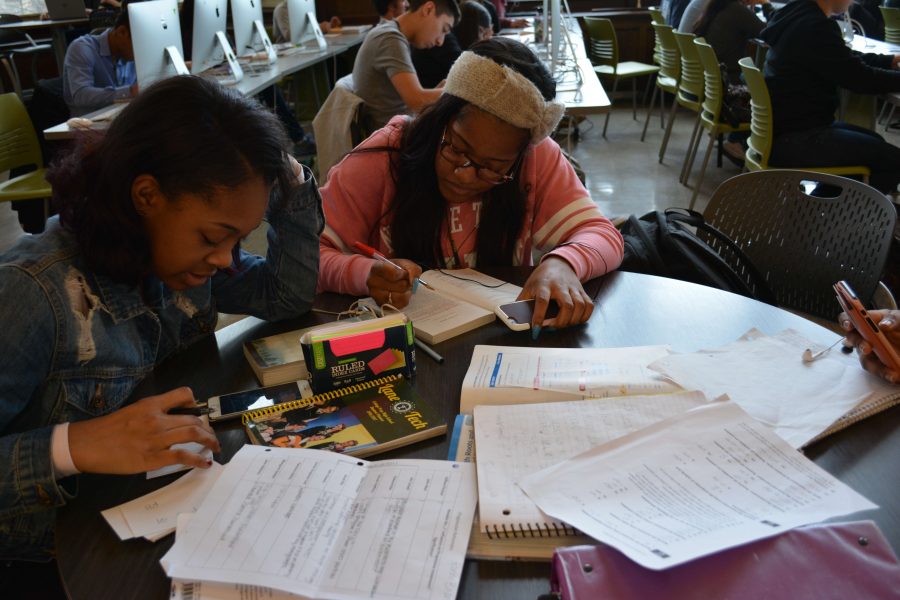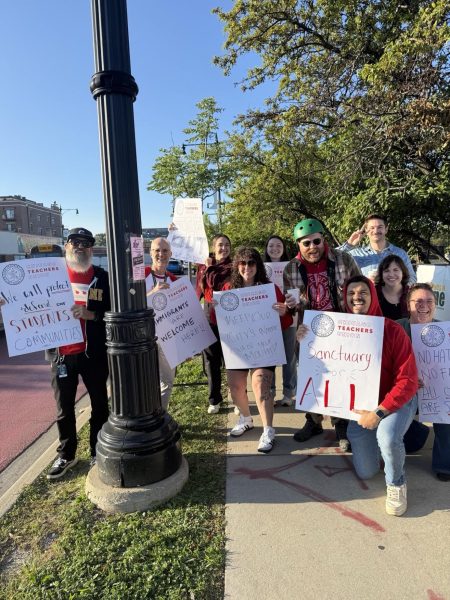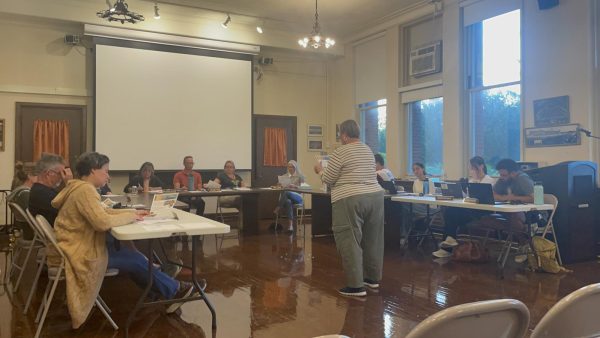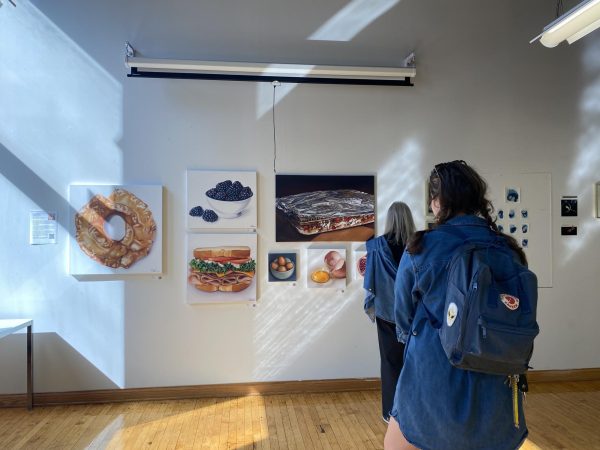The best holiday gift: no homework
Ronni Brent, Div. 859, left, and Nia Walker, Div. 864, work on homework in the library.
Wake up, go to school, come home, sleep. Wake up, go to school, come home, sleep.
An average school day at Lane is 7 hours and 15 minutes, not to mention extra curricular activities such as sports and clubs. For student Heidy Gutierrez, Div. 877, an additional two hours is added for her commute.
“I wake up at 5:30. Get ready. I try to leave my house at 6:15, get to the train station, catch my train — sometimes it’s two trains depending on the time,” said Gutierrez. “I take one bus and two trains to get home, and if I leave school right away, I get home at 5:30.”
With the busy schedules that high school students face, they are still expected to squeeze in time for homework and studying.
“The school saw a need and we started to discuss what we wanted to do to lower stress on students, without lowering expectations,” said Principal Mr. Tennison.
With discussion and faculty vote, the Lane community implemented a no homework policy for Winter Break. This meant that teachers would not assign any new homework, but also advised students to review academic material.
According to Mr. Tennison, three-quarters of the entire staff voted for the policy to be implemented. This was done after holding discussions for three months.
In a Dec. 5 letter sent to parents via email, administration wrote, “After much reflection, we, as a school community, have decided that winter break will be reserved as a time to recharge, reconnect with families and friends, and reflect on classroom learning.”
There was no definite confirmation from the administration as to whether the policy will be implemented again for spring or summer break.
“We discussed that we really need to honor what the discussion originally was and we have narrowed the scope of our conversation to just Winter Break,” Tennison said. “This year that’s all, we’ve done it, and then we’ll reflect at the end of the year as a community [and] we’ll plan for next year before we leave this year.”
According to Tennison, parents were “glowing” over the policy and teachers were approaching him in the hallways saying that they agreed with it.
“I was inspired by the break to read for pleasure and that healed my soul,” Mr. Fine, an English teacher, said. “It brought me back feeling more optimistic and refreshed than ever, which rubbed off on my students.”
Fine said that some of his students wrote an in-class argumentative essay the week before winter break, but did not perform so well. However, a few days after returning from break, his students wrote another argumentative essay and improved.
“The fact of the matter was that they didn’t need to review over break and by actually resting, they were able to clear their minds,” Fine said.
When discussing any cons about the no homework policy, Math teacher Ms. Valerio said, “I think that as a teacher after a two-week break, you kind of take a day for review, so it was more of getting the kids back into the groove after having two weeks off.”
Most students were happy that they did not have to worry or stress about completing homework over winter break.
“It was very calm and I was able to get more sleep,” said Alexandra Gonzalez, Div. 864. “I was just really happy to spend time with my family, take my mind off of homework and school for a while, and focus on what I actually wanted to.”
Some students took the time to focus on their hobbies. Isabel Davila, Div. 883, used her free time during the break to express her love for photography and dance.
“I rested a lot and all the stress that I felt that had built up throughout the semester, I feel like it kind of went away for a temporary amount of time” said Davila. “I did take some pictures and had practice for dancing. It’s one of the ways that I relieve my stress.”
Some students, however, felt that the policy set them a bit behind from their academic studies.
“During the second week of break, I kept worrying that I would fall behind,” said Eloisa Javier, Div. 870. “I feared that I missed something, I’m actually not thinking, and I’m forgetting something.”
Tennison said that he wished he had heard more input from students regarding the policy, since they were the main reason it was set in place.
“If the students really thought that this was a good thing, I think it’s really powerful to hear from students to say: this was nice, I really appreciated this, this helped,” Tennison said.
“It’s my personal belief that learning only occurs if you have enough time to reflect upon what you’ve actually learned,” Tennison said. “Without that time, we can’t process it.”
Your donations directly fund the Lane Tech student journalism program—covering essential costs like website hosting and technology not supported by our school or district. Your generosity empowers our student reporters to investigate, write, and publish impactful stories that matter to our school community.
This website is more than a publishing platform—it's an archive, a research tool, and a source of truth. Every dollar helps us preserve and grow this resource so future students can learn from and build on the work being done today.
Thank you for supporting the next generation of journalists at Lane Tech College Prep!

Clarissa Corral is a senior at Lane. She is very passionate about writing and journalism is something that she would like to pursue in college. Her dream...




